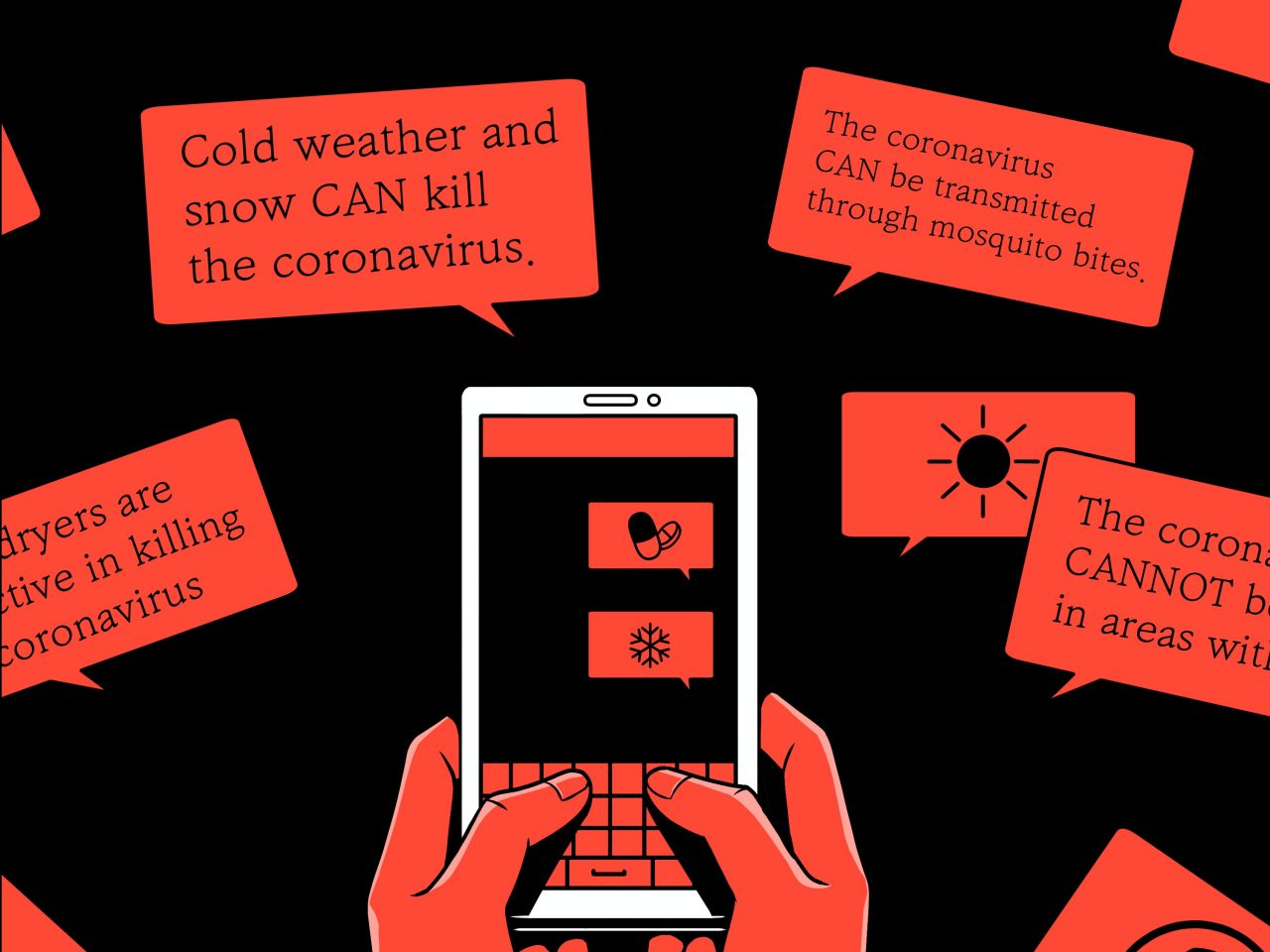Arising Challenges for Journalists and Businesses

By Sarah Madanat
Photo Credit: Image created by Redgirl Lee. Submitted for United Nations Global Call Out To Creatives
Journalists’ jobs are becoming increasingly difficult and come with an emphasized responsibility to deliver true and reliable information, apart from all the recent challenges this pandemic has imposed on all sectors. The world is now connected more than ever-digitally. If people previously spent 1-2 hours a day on social media or in front of a screen, that time is more likely doubled in times of quarantine and remote work. This means they are also more likely to read information online with the risk of being misinformed.
Dealing with fake news has been a growing challenge in this digital age for a while. In such crucial times of crisis where people need accurate and legitimate news, misinformation is being fed into the webs of social media distributing mutated facts. Fake news is shared through social media platforms such as Instagram, Twitter, and WhatsApp. The major concern is the impact that this misinformation has on society whether it be constructing beliefs or creating new motives. Why is that?
The heart of the problem lies in people sharing and re-posting fake news, without realizing underlying consequences on organizations and larger corporations dealing with one crisis after the next. The re-posts spread rapidly in the media infecting the thoughts of many, much like-if not worse than-the rapid spread of COVID-19.
In times of panic and fear, people are less rational and logical. World Health’s organization director general Tedors Adhanom Ghebreyesus states, “We’re not just fighting an epidemic; we’re fighting an infodemic…” It is a challenging time in which organizations and online platforms have the social responsibility of ensuring their users are aware of unreliable sources.
Being active on social media myself, I noticed posts from the W.H.O, the CDC, The Washington Post, and other sources on social media platforms designed and aimed to reduce the fear of anxiety that circulates with fake news. However, not everyone who uses WhatsApp and is exposed to fake news is also active on Instagram or Facebook which makes them less aware of the sources the news was originally from.
Another approach used to tackle the generation of fake news, are encryptions in algorithms on websites that create pop-ups when certain key words related to the virus are typed. For people who are not so active on social media and are using other online platforms, pop-ups are created tracking the words “corona”, “virus”, and other related words when used to notify readers of accurate information before sharing anything related to the topic. While using Canva, (a website that offers free design templates for graphics, presentations, cards, and more), a pop up appeared promoting awareness for double-checking facts on the W.H.O. website regarding the topic before mentioning it on slides, brochures, or any other print on Canva. Through innovative problem-solving, social media and other platforms can help minimize the misinformation being spread, however if the general public is not aware of this issue, the solution will never provide promising results.
It is important readers understand that the source of news requires validation before it is shared and re-posted for others to read. As George Bernard Shaw states. “Beware of false knowledge, it is more dangerous than ignorance.”
A major focus for businesses today handling the crisis is dealing with current issues in addition to stabilizing a future once this crisis is over.
 The Banner
The Banner